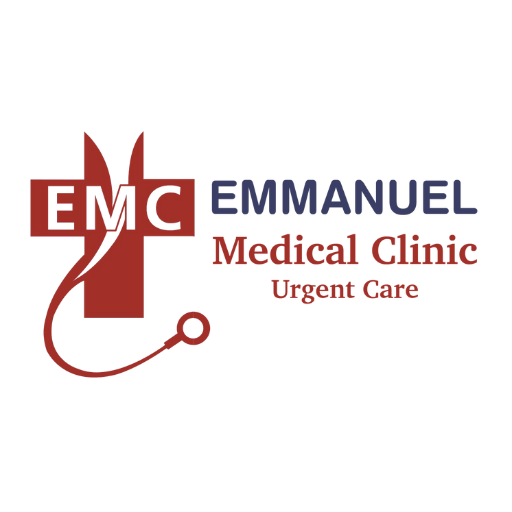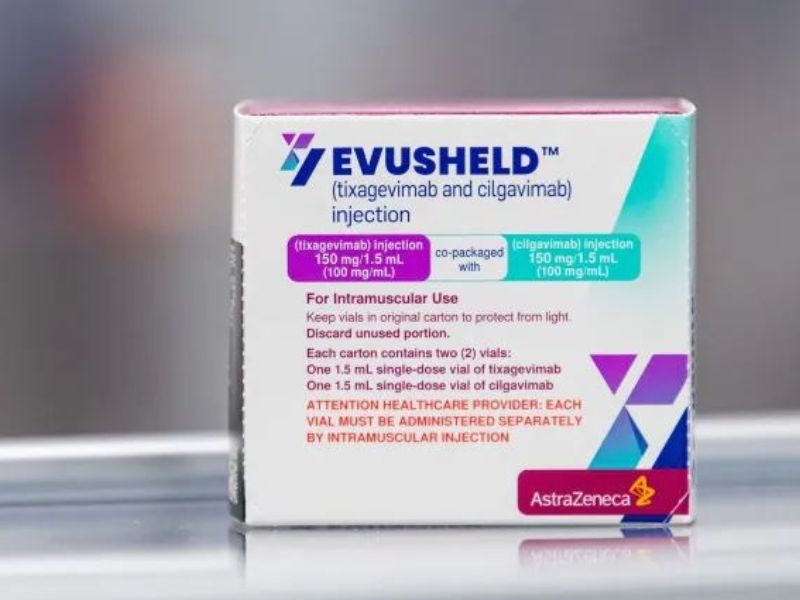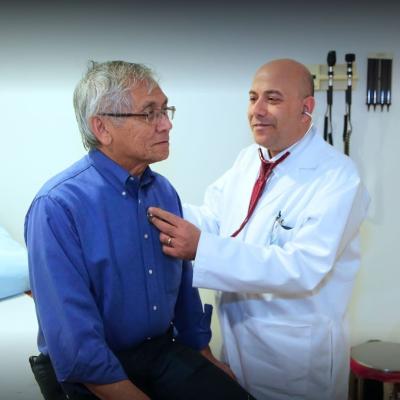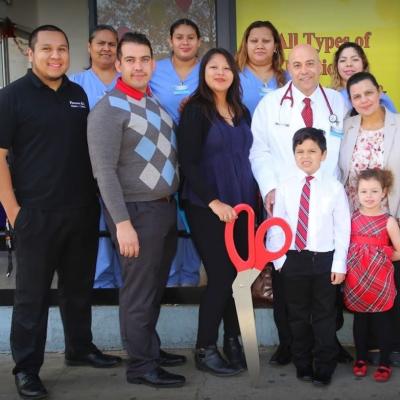Q. What is an Emergency Use Authorization (EUA)?
A: Under section 564 of the Federal Food, Drug & Cosmetic Act, after a declaration by the HHS Secretary based on one of four types of determinations, FDA may authorize an unapproved product or unapproved uses of an approved product for emergency use. In issuing an EUA, FDA must determine, among other things, that based on the totality of scientific evidence available to the Agency, including data from adequate and well-controlled clinical trials, if available, it is reasonable to believe that the product may be effective in diagnosing, treating, or preventing a serious or life-threatening disease or condition caused by a chemical, biological, radiological, or nuclear agent; that the known and potential benefits, when used to treat, diagnose or prevent such disease or condition, outweigh the known and potential risks for the product; and that there are no adequate, approved, and available alternatives. Emergency use authorization is NOT the same as FDA approval or licensure.
Q. What does this EUA authorize? What are the limitations of authorized use?
A. The EUA authorizes AstraZeneca’s Evusheld (tixagevimab co-packaged with cilgavimab) for emergency use as pre-exposure prophylaxis for prevention of COVID-19 in adults and pediatric individuals (12 years of age and older weighing at least 40 kg): • Who are not currently infected with SARS-CoV-2 and who have not had a known recent exposure to an individual infected with SARS-CoV-2 and o Who have moderate to severe immune compromise due to a medical condition or receipt of immunosuppressive medications or treatments and may not mount an adequate immune response to COVID-19 vaccination or o For whom vaccination with any available COVID-19 vaccine, according to the approved or authorized schedule, is not recommended due to a history of severe adverse reaction to a COVID-19 vaccine(s) and/or COVID-19 vaccine component(s). [see Warnings and Precautions (5.2)].
Limitations of Authorized Use • Evusheld is not authorized for use in individuals: o for treatment of COVID-19, or o for post-exposure prophylaxis of COVID-19 in individuals who have been exposed to someone infected with SARS-CoV-2. • Pre-exposure prophylaxis with Evusheld is not a substitute for vaccination in individuals for whom COVID-19 vaccination is recommended. Individuals, for whom COVID-19 vaccination is recommended, including individuals with moderate to severe immune compromise who may derive benefit from COVID-19 vaccination, should receive COVID-19 vaccination. • In individuals who have received a COVID-19 vaccine, Evusheld should be administered at least two weeks after vaccination. For any other limitations or conditions on use, please see the letter of authorized use.
Q. What is the new recommended Evusheld dosing regimen?
A. The initial authorized Evusheld dose is now 300 mg of tixagevimab and 300 mg of cilgavimab administered as two separate consecutive intramuscular (IM) injections.
Q. Is the new initial Evusheld dose given in the same way as the prior initial Evusheld dose?
A. The volume of each injection will be 3 mL instead of 1.5 mL. Due to the larger volume, the location of the injections should be limited to large muscles that can accommodate this volume (e.g., the gluteal muscles). Otherwise, the method of administration will be the same.
Q. If an individual already received the original, lower Evusheld dose, what should they do?
A. Individuals who have already received the previously authorized initial dose (150 mg of tixagevimab and 150 mg of cilgavimab) should receive an additional Evusheld dose as soon as possible, with the dose based on the following criteria:
• If the patient received their initial dose less than or equal to 3 months ago, the patient should receive a dose of 150 mg of tixagevimab and 150 mg of cilgavimab.
• If the patient received their initial dose longer than 3 months ago, the patient should receive a dose of 300 mg of tixagevimab and 300 mg of cilgavimab.
Q. Why did FDA revise the EUA on February 24, 2022, to change the dosing regimen?
A. There are different variants (and subvariants) of SARS-CoV-2. Currently, the Omicron BA.1, BA.1.1, and BA.2 subvariants are circulating in the United States. The dosing regimen was revised because available data indicate that a higher dose of Evusheld may be more likely to prevent infection by the Omicron subvariants BA.1 and BA.1.1 than the originally authorized Evusheld dose.
In addition, the duration of protection provided by Evusheld against symptomatic SARS-CoV-2 infection may not be as long as was shown in the initial clinical trial because the clinical trial data came from a time period before the emergence of the Omicron BA.1 and BA.1.1 viruses. However, it is not known whether BA.1 and BA1.1 will still be circulating in the coming months or whether BA.2, for which Evusheld is expected to have greater neutralizing activity, will become dominant. Because it is unclear which SARS-CoV-2 variant or Omicron subvariant will become dominant in the United States over the next few months, the recommended timing for repeat dosing cannot be provided at this time. We will continue to monitor the situation closely and will provide updates with redosing recommendations in the near future when more data are available to determine the appropriate timing of redosing (e.g., 3 months or 6 months after the prior dose).
Q. What are some medical conditions or treatments that may lead to an inadequate immune response to the COVID-19 vaccination?
A: Medical conditions or treatments that may result in moderate to severe immunocompromise and an inadequate immune response to COVID-19 vaccination include but are not limited to:
• Active treatment for solid tumor and hematologic malignancies
• Receipt of solid-organ transplant and taking immunosuppressive therapy
• Receipt of chimeric antigen receptor (CAR)-T-cell or hematopoietic stem cell transplant (within 2 years of transplantation or taking immunosuppression therapy)
• Moderate or severe primary immunodeficiency (e.g., DiGeorge syndrome, Wiskott-Aldrich syndrome) • Advanced or untreated HIV infection (people with HIV and CD4 cell counts <200/mm3, history of an AIDS-defining illness without immune reconstitution, or clinical manifestations of symptomatic HIV)
• Active treatment with high-dose corticosteroids (i.e., ≥20 mg prednisone or equivalent per day when administered for ≥2 weeks), alkylating agents, antimetabolites, transplant-related immunosuppressive drugs, cancer chemotherapeutic agents classified as severely immunosuppressive, tumor-necrosis (TNF) blockers, and other biologic agents that are immunosuppressive or immunomodulatory (e.g., B-cell depleting agents)
For additional information, refer to the CDC Vaccines & Immunizations website.
Q. Can people who have had a severe allergic reaction to a COVID-19 vaccine receive Evusheld?
A. Yes. People who have had a severe allergic reaction to a COVID-19 vaccine can receive Evusheld under the EUA. Evusheld contains polysorbate 80, which is in the Janssen COVID-19 Vaccine and is structurally similar to polyethylene glycol (PEG), an ingredient in the Pfizer-BioNTech and Moderna COVID-19 vaccines. Clinicians should consider consulting an allergist-immunologist prior to administering Evusheld to individuals with a history of a severe allergic reaction (e.g., anaphylaxis) to a COVID-19 vaccine.
For all individuals, Evusheld should be administered under the supervision of a health care provider with appropriate medical support to manage severe allergic reactions. In addition, everyone who receives Evusheld should be observed after injection for at least one hour to monitor for hypersensitivity reactions. Signs and symptoms of severe allergic reactions may include the following: dyspnea, chills, fatigue/asthenia, tachycardia, chest pain or discomfort, nausea/vomiting, angioedema, dizziness, urticaria, wheezing, pruritus, flushing, hyperhidrosis, myalgia, vaso-vagal reaction (e.g., pre-syncope, syncope), or throat irritation.
Q. Is Evusheld approved by the FDA to prevent or treat COVID-19?
A. No. Evusheld is not FDA-approved to prevent or treat any diseases or conditions, including COVID-19. Evusheld is an investigational drug
Q. How can Evusheld be obtained for use under the EUA?
A. For questions on how to obtain Evusheld, please contact Us
Q. Who may prescribe Evusheld under the EUA?
A. Evusheld may only be prescribed for an individual patient by physicians, advanced practice registered nurses, and physician assistants that are licensed or authorized under state law to prescribe drugs in the therapeutic class to which Evusheld belongs (i.e., anti-infectives).
Q. Are tixagevimab and cilgavimab monoclonal antibodies? What is a monoclonal antibody?
A. Yes, tixagevimab and cilgavimab are monoclonal antibodies. Monoclonal antibodies are laboratory-produced molecules engineered to serve as substitute antibodies that can restore, enhance or mimic the immune system's attack on pathogens. Evusheld is designed to block viral attachment and entry into human cells, thus neutralizing the virus.
Q. When should Evusheld be administered to a patient?
A. Patients should talk to their health care provider to determine whether, based on their individual circumstances, they are eligible to receive Evusheld, and when it should be administered. More information about administration is available in the Fact Sheet for Health Care Providers.
Q. Are there potential side effects of Evusheld?
A. Possible side effects of Evusheld include the following: Allergic reactions can happen during and after injection of Evusheld. Reactions to Evusheld may include difficulty breathing or swallowing; shortness of breath; wheezing; swelling of the face, lips, tongue or throat; rash including hives; or itching. Everyone who receives Evusheld should be observed after injection for at least one hour to monitor for hypersensitivity reactions, and Evusheld should only be administered under the supervision of a health care provider with appropriate medical support to manage severe allergic reactions. Clinicians should consider consulting an allergist-immunologist prior to administering Evusheld to individuals with a history of a severe allergic reaction to a COVID-19 vaccine. The side effects of getting any medicine by intramuscular injection may include pain, bruising of the skin, soreness, swelling, and possible bleeding or infection at the injection site. Serious cardiac adverse events (such as myocardial infarction and heart failure) were infrequent in the clinical trial evaluating Evusheld for pre-exposure prophylaxis for prevention. However, more trial participants had serious cardiac adverse events after receiving Evusheld compared to placebo. These participants all had risk factors for cardiac disease or a history of cardiovascular disease before participating in the clinical trial. It is not clear if Evusheld caused these cardiac adverse events. These are not all the possible side effects of Evusheld. Not a lot of people have been given Evusheld. Serious and unexpected side effects may happen. Evusheld is still being studied so it is possible that all of the risks are not known at this time.
Q. Are there reporting requirements for health care facilities and providers as part of the EUA?
A. Yes. As part of the EUA, FDA requires health care providers who prescribe Evusheld to report all serious adverse events and medication errors considered to be potentially related to Evusheld through FDA’s MedWatch Adverse Event Reporting program. Providers can complete and submit the report online; or download and complete the form, then submit it via fax at 1-800-FDA-0178. This requirement is outlined in the EUA’s health care provider Fact Sheet. FDA MedWatch forms should also be provided to AstraZeneca.










 And then Add to Home Screen.
And then Add to Home Screen.